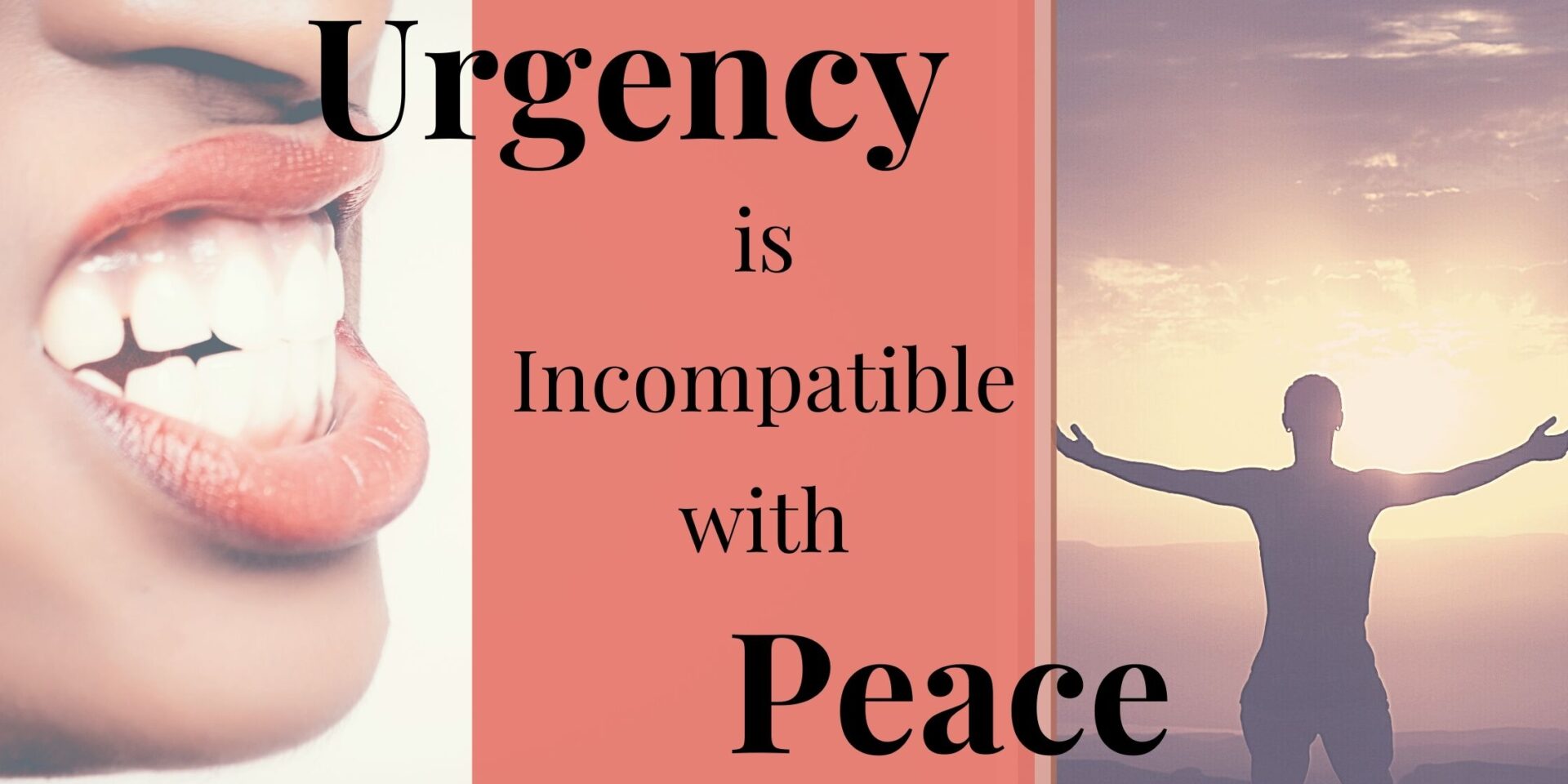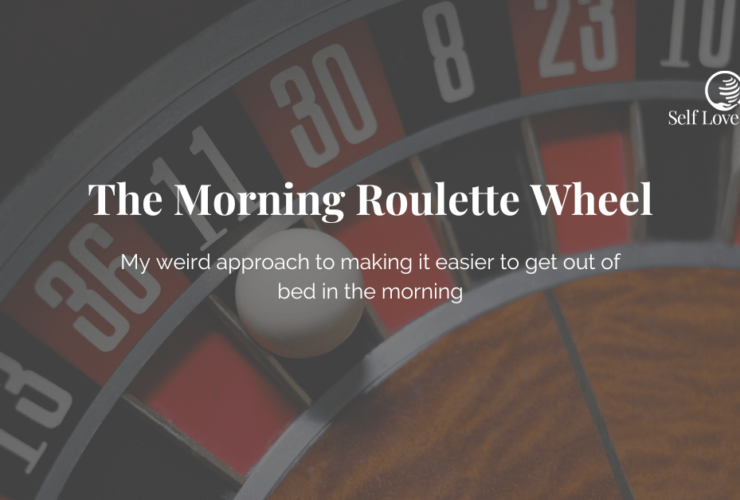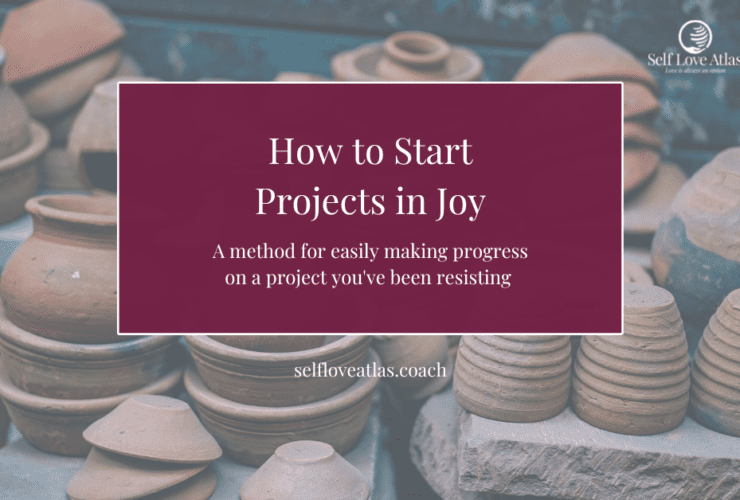Urgency is Incompatible with Peace
Feelings of peace are technically available to you right now, but there is something getting in your way: urgency.
It is perfectly normal to feel a sense of urgency when we have numerous responsibilities, approaching deadlines, or problems to solve. But as soon as these pressing matters begin piling on top of themselves, our thoughts about them fill our minds densely, blocking out the thoughts that could have brought us feelings of peace or joy.
Our feelings of urgency tell us we won’t have an opportunity to relax until everything has been handled, finished, and solved. But this isn’t necessarily true.
If we can give ourselves permission to relax and feel peaceful despite our stressors, then feelings of peace will no longer be unattainable. Instead, peace can become a tool to help us manage our lives more gracefully.
Peace Too Long Delayed is Peace Denied
Perhaps you’ve heard the phrase “Justice delayed is justice denied.” This maxim communicates that if justice is not served in a timely manner, then justice has been effectively denied to whoever has been treated unjustly.
This is an acknowledgement that when we put off something important (such as justice) by telling someone “not yet,” we’re effectively denying them access to something they rightfully deserve.
Similarly, whenever we are in an emotional state of urgency, we are delaying feelings of peace. And if we delay our feelings of peace for too long, we are effectively denying ourselves peace in the process.
When we feel urgency, we find ourselves saying things like “I can’t not _____ ,” “I have to take care of X Y and Z,” and “I need to solve this problem right this moment.”
At a glance it all seems true. But sometimes what we’re really saying to ourselves is, “I am not allowed to feel peaceful or relaxed until I have nothing to worry about.” or “I will not relax until I’ve thoroughly taken care of everything else first.”
If we tell ourselves we are incapable of feeling peace until everything on the to do lists of our lives are done, we will rarely feel peaceful. We will rarely relax, and we will deny ourselves the experience of peace many times throughout our lives.
To Achieve Moments of Peace, We Must Dissolve Feelings of Urgency
Much of the existing self-help talk on peace tends to focus on practices that help people feel peaceful, like deep breathing, meditation, spending time in nature, etc.
But I’ve found that many people have a hard time making themselves do these things because they urgently feel they should be doing something else.
If we attempt to feel peace without recognizing urgency and addressing its source, we’re only fighting half the battle. So instead of talking about how to practice peace, the rest of this post will map out how to identify, name, and dissolve urgency as a new strategy to move towards peace.
Note: urgency isn’t always a bad thing, sometimes a sense of urgency can help us get out of bed in the morning or convince us to start a project, but if a sense of urgency becomes too strong, it can become overwhelming and paralyzing. If urgency overwhelms you, then addressing it will serve you well (and help you move forward).
Feeling Urgency in Your Body
One of the books I read recently, “Steering by Starlight” by Martha Beck, strongly encourages “listening to your body.” In other words, this means paying attention to physical sensations that occur in concert with your emotions.
(This is something that very few people do, but it would really benefit us if we did; The more we listen to our body, the better able we are to interpret our emotions and understand ourselves.)
Once I started listening, I became keenly aware of a dull tension in my upper body. A tension that had existed for a while, but I had never noticed.
On the surface, the tension felt like motivation or drive. But in a deeper way, the sensation felt constricting and upsetting, similar to how I’d imagine having a large snake wrapped around my shoulders would feel.
This tension emerged whenever I thought about problems that “needed” to be solved or tasks that I felt “needed” to be completed. And no matter how much deep breathing I did, the moment I thought about those things again, the tension would come back. Now, I recognize that feeling as urgency.
For most people, urgency involves physical tension in our bodies. For me, it was in my shoulders, but for others it might appear in the form of short breathing, a fast heart rate, tight muscles in other parts of the body, etc.
If you catch yourself doing these things, ask yourself the following questions:
- What tension am I experiencing?
- What was I thinking about when this tension occurred?
- Are my thoughts potentially causing this sensation in my body?
- Does “urgency” sound like an accurate way to describe what I’m feeling?
Now, take some deep breaths and try to clear your mind, does anything in you release this tension? Do your shoulders drop at all? Does the tightness loosen?
These questions are simply meant to help you notice and acknowledge the presence of urgency. That way, if you decide you don’t want to perpetually carry it around with you, you can start to get rid of it.
Noticing Signs of Urgency
Listening to your body can be challenging if you’ve never done it before (especially if you’ve been taught that feeling your emotions fully is unhelpful or irrational). So to help with spotting urgency in your life, here’s a brief list of signs that urgency might be present.
- You feel pressured on a time sensitive task.
- You feel there will be consequences for failing to do something well (or failing to do it in the first place).
- Another person expresses their urgency to you or rushes you.
- You find yourself feeling impatient, or checking the time constantly.
- You can’t seem to get your mind off of your to-do list.
If you happen to notice any of these signs, assess whether or not you may be feeling urgency, and if you are, name it.
Naming Urgency
If you want to feel truly happy, fulfilled, peaceful, etc. Then you need to name the moments when you don’t feel that way. (Note: when I say “name” urgency, I mean acknowledge its presence in your life.)
It boggles my mind how many people go through life suppressing and ignoring their negative emotions in hopes that those emotions will one day disappear and no longer be a weight on their shoulders. As soon as we allow ourselves to acknowledge those negative emotions, we take the first step to processing, understanding, and overcoming them.
This is exactly what I’d like you to do with urgency.
When you notice the signs or sensations in your body as urgency, say, “I’m feeling urgent right now. And whenever I am feeling urgent, I cannot feel peace.”
And if you want to feel at peace with your life, name that too, say, “I want to feel peace. I want to feel at peace with my life.”
This acknowledgement reminds us that peace is something we truly want, and that when we feel urgently, we are denying ourselves something we want. If we passively allow the urgency to continue, it will reliably keep peace out of our reach.
I imagine urgency as a metaphorical (and sometimes literal) gritting of the teeth.
So many of us are gritting our teeth through life. We’re determined to grit those teeth until there’s no longer anything to grit our teeth through. But the truth of the matter is, if we grit our teeth forever, we’re going to be met with pain later down the line (like bone loss or cracked teeth).
In other words, if you think urgency is the way to peace, you’re going to hurt yourself or burn yourself out before you ever have a chance at finding it. So you need to be willing to loosen your jaw every once in a while.
Dissolve Your Urgency and Take Your Power Back
While I am by no means offering a way to rid yourself of urgency for the rest of your life. I’d like to offer two strategies for mentally getting the urgency to dissolve or “quiet down” long enough for you to access peace.
If you can do this, then you’ll be able to use peace to tackle whatever you’re facing in a calm and collected way.
Strategy 1: Argue With Urgency
The best way to dissolve urgency is to argue with it. Urgency, like fear, anxiety, and stress, is an emotion that is trying to protect us. It wants to help us by making sure we don’t forget or put things off for too long. But this isn’t always helpful.
So to argue with your Urgency, visualize your Urgency as a version of you who wants to help you. Acknowledge that he/she/they have good intentions. and tell them that they’re not being helpful. Tell Urgency that you don’t need them, and that they are not serving you right now.
The reason I suggest personifying Urgency is because Urgency is one of the many forms in which fear will show up in your life (anxiety is another form). You are not your fear, and you are not your Urgency. It is something you have, and something you can manage as long as you don’t make the mistake of confusing it with your identity.
What to Expect When You Argue With Urgency
When you argue with Urgency, they will respond with a slippery slope of consequences that might happen if you don’t listen to them. But usually the consequences Urgency holds over your head are either dramatic and unrealistic, or they’re simply not as bad as they sound.
Urgency will say things like “But look! Your life will come crashing down on you if you don’t make it to your meeting on time!” This is both dramatic and inaccurate. To argue with this, tell Urgency, “No, it really won’t. If I’m late to this meeting, I’ll just apologize and then try not to be late next time.”
Maybe Urgency will say, “If I don’t make my home spotless before company comes over, my friends will think I’m a slob!” This might sound like a terrible consequence at first, but is that consequence really that bad? Do you want to keep friends who judge you if your home doesn’t look perfect all the time?
To argue with this, tell Urgency, “I don’t need my home to be spotless. If my friends judge me for living in my own home, that’s their problem, not mine.”
Or perhaps Urgency will say, “You’ll be a dropout if you don’t get a better grade on your next assignment!” Which, again, is dramatic and very unlikely. And even if you did drop out, there are plenty of people who have perfectly fulfilling and successful lives after dropping out.
Don’t let Urgency get the best of you. Take your power back by calling Urgency out for being unreasonable and alarmist.
Strategy 2: Ask Urgency to Step Aside
Odds are, if Urgency is overwhelming you and causing feelings of tension or discomfort, then you are not in an optimal position to handle or address whatever task you’re trying to accomplish.
Peace, however, is a state of mind that is great for addressing most things in a calm and collected way. So if Urgency wants you to handle your tasks effectively, then it must admit that accessing peace will be helpful.
If you visualize Urgency and tell it, “I could really use a clear head right now, I think I’ll be better able to handle this if you give me some space to handle this calmly. Can you step aside for a moment so I can try to address my situation as effectively as possible?” you might be surprised to find that Urgency will comply and soften with your polite and logical request.
If you understand that peace can help you through whatever you’re feeling urgent about, then Urgency becomes an unnecessary tool, and it therefore won’t hurt when Urgency steps aside.
Another way of doing this is to visualize Urgency as having a volume knob.
Tell Urgency, “You are filling my mind so much that I cannot think straight, so I’m going to turn your volume down for a little while, not permanently, but for a moment, just so I can think straight and get to the mindset I need to be effective right now.” Then, visualize turning the knob down. (Credit for this metaphor goes to a PBS documentary called “The New Medicine” in 2006 which featured this “visualizing dialing down” technique to help patients manage chronic pain.)
The thing I love about using this metaphor with urgency is that peacefulness can feel like a quiet stillness when our minds are no longer full of chatter and worries. So when we turn down the volume of Urgency, we are inherently making room in our minds for peace.
I hope this post helps you identify, name, and dissolve your feelings of urgency so you can begin moving towards peace now. Instead of delaying and denying yourself access to it.
Did this post resonate with you? If so, I’d love to hear from you! Leave a comment or send me a message to share your thoughts. For more uplifting content, check out some other posts on my blog, follow me on instagram @morgan_barbret, or sign up for the Self Love Atlas Newsletter!
Cheers,
Morgan Rita Barbret






Believe it or not, I find listening to new age music (Kitaro, Deuter, etc.) helps me to deal with the urgency. It is relaxing, and puts my mind in a better state to deal with the urgency later.
I hadn’t heard either of those artists before, but I looked them up and I agree! They are very relaxing.
New age music seems to be the perfect genre for seeking peace.